
Rhode Island’s cultural diversity is one of our great assets, but our communities often experience different opportunities to engage and enjoy. If we want our state to be more equitable, we require courageous leadership and intentional investments in racial and economic equity and access.
As organizations committed to racial justice, we feel the issue of race has been missing from the discussion about Kennedy Plaza. We all want to see vibrant community commons that support our economic and community development. But we recognize that strategies like increased policing will continue to disadvantage the poor, especially people of color, and siphon dollars away from social safety net programs that uplift those most marginalized.
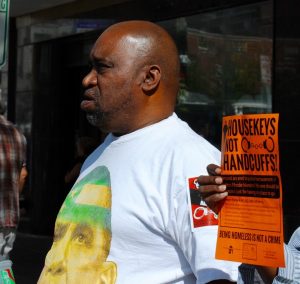 New England communities were built with public “commons,” but despite their name these public spaces have always excluded the most disenfranchised: the indigenous people whose land was stolen, the enslaved Africans who quite literally built our communities, and those who did not fit society’s image of proper decorum. This continues today, with increase policing and criminalization of black and brown bodies, those exhibiting impact of addiction or mental illness, and the poor and homeless.
New England communities were built with public “commons,” but despite their name these public spaces have always excluded the most disenfranchised: the indigenous people whose land was stolen, the enslaved Africans who quite literally built our communities, and those who did not fit society’s image of proper decorum. This continues today, with increase policing and criminalization of black and brown bodies, those exhibiting impact of addiction or mental illness, and the poor and homeless.
As our allies who are advocating for the homeless pointed out in their excellent “Reclaiming our Public Spaces” report, we cannot simply sweep away the poverty that many don’t want to see. Poverty and homelessness have disproportionate impact on communities of color, in large part because of public policies that exclude particular racial and ethnic groups from the supports that help build wealth and economic stability. Public policies fit together like bricks to shape our society, and our vision for racial justice requires some shifts in thinking. More people with criminal records, out of our workforce and warehoused at public cost, doesn’t help us build the society we envision.
Rather than seeking to invest our resources in short-sighted efforts to remove people we have deemed “undesirable,” let’s make real investments in the type of community supports and assets that eliminate the need for panhandling, support mental health and addiction recovery, and provide living wage jobs for everyone, including those with criminal records. Let’s engage our business community support in increased wages, publicly funded detox and recovery support, development of affordable housing, and compliance with First Source and Ban the Box laws. Let’s provide meaningful, well-paying work opportunities for adults with moderate education, and support public access to skilled training and higher education for our youth. Let’s recognize that amenities like public restrooms, drinking fountains, increased seating, and charging stations will support many types of users. And let’s bring love and compassion to the struggle of all those in our community, even those whose circumstances or behavior might make us uncomfortable.
Mike Araujo, Executive Director, Rhode Island Jobs with Justice
James Vincent, President, NAACP Providence Branch
Chanda Womack, President, Board of Directors, Cambodian Society of Rhode Island
On behalf of the Racial Justice Coalition.
]]> Over one hundred forty thousand (141,035) Rhode Islanders lived in poverty in 2015, according to new data released today from the Census Bureau. The drop in the rate to 13.9% in 2015 from 14.1% in 2014 is not statistically significant. The poverty level for a family of four is approximately $24,000.
Over one hundred forty thousand (141,035) Rhode Islanders lived in poverty in 2015, according to new data released today from the Census Bureau. The drop in the rate to 13.9% in 2015 from 14.1% in 2014 is not statistically significant. The poverty level for a family of four is approximately $24,000.
The one in seven Rhode Islanders with income below the poverty level do not have enough to meet basic needs. Child Care Assistance, SNAP and health insurance coverage help working families make ends meet when earnings are not enough. Rhode Islanders unable to work on a temporary or permanent basis turn to cash assistance and other programs to protect themselves and their children. The new on-line integrated eligibility system can facilitate enrollment in these vital programs. But the new technology cannot replace the need for staff. “In the two years that the HealthSource RI on-line system has been operative, most new applicants have required help either over the phone or in-person to complete their application. Access to computers and knowing how to navigate an on-line application have also been issues.” said Rachel Flum, Executive Director of the Institute. “With more programs accessible through the system, the need for one-on-one assistance is even greater. The state must ensure that there are sufficient staff to help people access these critical benefits.”
The Ocean State had the highest rate of its residents living in poverty among the New England state and ranked 26th among all states.
Today’s data also show that Rhode Island’s communities of color were much more likely to struggle to meet basic needs with nearly one in three Latinos, close to one in four African Americans and more than one in six Asians living in poverty. While the one-year census data does not permit sub-group analysis, multi-year analysis shows that South East Asians are not as economically secure as the Asian population as a whole (See analysis of five-year median wage data in “State of Working Rhode Island, 2015: Workers of Color”).

“It is unacceptable that so many Rhode Islanders are living in poverty and shocking that Black, Latino, and Asian households face such deeper economic distress compared to the white majority. To truly achieve economic equity now and into the future, our state must be intentional about targeted policies to address racial disparities in wages, income, and total wealth,” said Jenn Steinfeld, facilitator for the Racial Justice Coalition, a new collaborative effort to address shared barriers faced by all non-white Rhode Islanders.
The Census Bureau released extensive information on the economic and health insurance status of Americans. The Economic Progress Institute website provides additional analysis of the new data for Rhode Island, including the more positive news that median income increased in 2015 to $58,073 from $54,959 in 2014.
]]> The Rhode Island Supreme Court has adopted a new policy that will allow women Bar applicants who are breastfeeding to easily obtain accommodations when taking the Bar exam. The policy was adopted after a number of groups encouraged the Rhode Island Board of Bar Examiners to revise its policies that offered no accommodations to individuals who were breastfeeding, leaving them at a serious disadvantage during the test.
The Rhode Island Supreme Court has adopted a new policy that will allow women Bar applicants who are breastfeeding to easily obtain accommodations when taking the Bar exam. The policy was adopted after a number of groups encouraged the Rhode Island Board of Bar Examiners to revise its policies that offered no accommodations to individuals who were breastfeeding, leaving them at a serious disadvantage during the test.
The new policy now explicitly extends eligibility for accommodations to those who are breastfeeding, and allows breastfeeding applicants to request and obtain accommodations without unnecessary or intrusive burdens. The ACLU of Rhode Island, Rhode Island Women’s Bar Association, League of Women Voters of Rhode Island, Planned Parenthood of Southern New England, Women’s Fund of Rhode Island, and Rhode Island NOW had sent a number of letters to the Board since last July calling for these reforms.
Jenn Steinfeld, executive director of the Women’s Fund of Rhode Island, said today: “Our organization applauds the Rhode Island Supreme Court’s recognition of the importance of accommodating breast feeding applicants. This is yet another step toward professional accessibility for all. Like Rhode Island’s new state law providing workplace protections for pregnant and breastfeeding employees, this policy helps ensure that parents don’t have to choose between the health of their children and their employment or career. We are proud to see Rhode Island promote gender equality and will remain vigilant to ensure it is implemented fairly.”
In their correspondence with the Board, the groups recommended accommodations such as allowing women to bring necessary medical equipment and supplies to the test, providing additional break time to express breast milk, or other accommodations an individual may need to ensure women do not suffer any medical issues. Not allowing for such accommodations, the groups noted, forced candidates needing accommodations related to breastfeeding to choose between taking the test under conditions that could place their health at risk and postponing their test date until they were no longer breastfeeding.
Jane W. Koster, president of the League of Women Voters of RI, said: “The new policy in place for accommodations erases discrimination and prevents arbitrary decision-making, and thus offers the exam without bias or barriers against women who are breastfeeding. In the future, I am sure we will hear success stories from women who found great convenience, comfort and ease of exam anxiety while profiting from these accommodations. I applaud the R.I. Supreme Court’s decision.”
Rhode Island now joins all other New England states and many others across the country that provide specific accommodations for women who are breastfeeding at the time of their Bar exam. The previous policy addressed only accommodations for people with disabilities.
A copy of the new policy is available here: https://www.courts.ri.gov/AttorneyResources/baradmission/PDF/Nonstandard_Testing.pdf
]]> A few months ago, Governor Gina Raimondo hosted a meeting for members of the “LGBTQ community” at which no People of Color were present, because no People of Color were invited. Some attendees later reflected on their discomfort sitting in that meeting which was either intentionally or unintentionally (depending on your level of cynicism) racially-exclusive.
A few months ago, Governor Gina Raimondo hosted a meeting for members of the “LGBTQ community” at which no People of Color were present, because no People of Color were invited. Some attendees later reflected on their discomfort sitting in that meeting which was either intentionally or unintentionally (depending on your level of cynicism) racially-exclusive.
Some amount of dialogue emerged from this experience. It was wisely suggested, and I’ll paraphrase, that, “When LGBTQ people are invited to events, we need to start asking ‘Who else will be there?’” (Thank you, Jenn Steinfeld)
Still, in the last several months, organizations within the community continue to plan event after event with no POC participation and this is an trend in mainstream LGBTQ community events and organizations throughout the country.
In her book White Women, Race Matters: The Social Construction of Whiteness, author Ruth Frankenberg sought to examine this issue within the feminist community by posing the question, “What are the social processes through which white women are created as social actors primed to reproduce racism within the feminist movement?”
What if we rework that question to address the same issue in the LGBTQ community?
What are the social processes through which white members of the LGBTQ community are created as social actors primed to reproduce racism within the LGBTQ movement?
A major social process through which the LGBTQ community interacts is performance events such as musical events, comedy reviews, drag shows, annual festivals, etc. Surely there will be instances where it is impossible to incorporate an accurate cross-section of the community.
Sometimes interest is low and organizers have to book whatever performers they can get. Sometimes the number of performers is so limited that the ideal racial representation is not possible. These things are understandable. But when we see organizers of large-scale, mainstream events continue racial exclusivity year after year, we, as writer Aaron Talley put it, “continually swallow the complexities of being black and queer in this country into their narratives of restrictively safe whiteness.”
I am often reminded of the words of long-time Rhode Island Pride President Rodney Davis, “As we look around, noticing all the people who are with us, we must also ask ourselves, ‘Who is missing?'”
We are living in a time when racial awareness and social consciousness have been elevated to levels we haven’t seen in a generation. Let’s not wait until damage is done and people are left out to ask ourselves, “Who is missing?” Instead, let’s remind ourselves and each other to start asking “Who else will be there?” and let that inform our decisions as to what events we attend.
]]>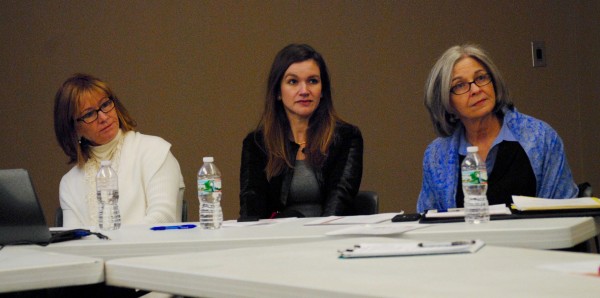
Rhode Island is the third state to offer a Temporary Caregiver Insurance Program (TCI) and according to research, the program is very popular. Yet about half of those surveyed during a review of the first year of the program’s implementation were unaware of this benefit.
According to the DLT website:
The Temporary Caregiver Insurance Program was signed into law and will become effective as of January 5, 2014. Individuals may apply for benefits as of January 5, 2014.
• An individual may receive up to a max. of 4 weeks of TCI benefits (which will reduce the max. weeks of TDI) during a Benefit Year Period
• To care for a for a seriously ill child, parent, spouse, domestic partner, parent-in-law, or grandparent………or
• To Bond with a newborn child, adopted child or foster-care child (available during the first 12 months of parenting only)
• Monetary eligibility is determined the same as for TDI benefits
• Caregiver claims: the claimant is responsible to obtain the medical documentation necessary
• Bonding claims: the claimant is responsible to provide proof of child/parenting relationship.
TCI will payout roughly 2/3rds of your wages during your time off.
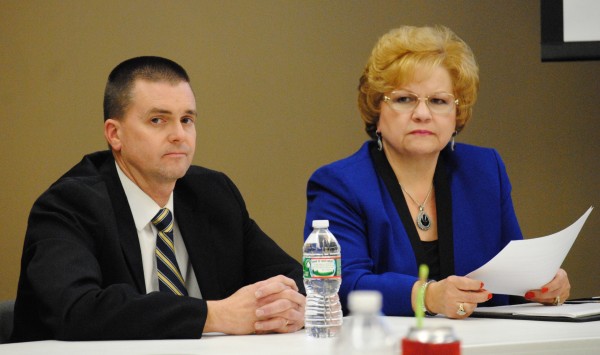
The RI Department of Labor and Training, (DLT) contracted the Schmidt Labor Research Center at the University of Rhode Island to analyze data and make recommendations as to the public’s awareness of the program, ability to access the program, impacts of the program on families and work, and to identify barriers that prevent families from accessing the program. At an event hosted by the Women’s Fund of Rhode Island, researchers Barb Silver, Helen Mederer and Emilija Djurdjevic presented their findings.
About half of those surveyed were aware of TCI. Those more aware “were more likely to have higher incomes and education.” There was less awareness among lower income, older, less educated and non-white populations. Also, employees working for smaller employers and for employers who offer less benefits were less likely to be aware of TCI.
Even those aware of the program were not fully informed as to all its benefits. Just over half understood that TCI provides job security: If you access TCI, your job will be waiting for you when you return to work. Half also are unaware that the program offers 60 percent wage replacement. Only a quarter realized that the program is funded by employee contributions.
Because of this the URI researchers suggest targeted marketing to those populations who are not taking advantage of the program and a focus on job security and employee contributions in that marketing.
The majority of users used TCI to bond with a new child. Only 22 percent took TCI to care for an ill family member.
Compared to other forms of time off to deal with family adjustment or caring for an ill family member, those who used TCI reported easier transitions back to work, lower absenteeism, better overall physical health, lower stress, more baby wellness visits, greater likelihood of following medical advice and greater likelihood of breastfeeding. The “ability to initiate nursing is a key public health issue,” said one of the presenters.
Those accessing TCI were better able to maintain their financial security as well.
The greatest barriers to accessing TCI are lack of awareness, inability to afford the loss of income, lack of employer benefits and worry about negative work outcomes.
Ultimately the research found that TCI is “needed, appreciated, and has current and long-lasting positive effects on employees.”
“We know people love it,” said Jenn Steinfeld, executive director of the Women’s Fund RI, “We need word of mouth to get the word out to more people.”
The Economic Progress Institute has a guide to accessing TCI here.
]]>
Rhode Island’s celebration of the Supreme Court‘s historic decision allowing same-sex couples to marry across the United States was also a history lesson about the long battle for full LGBTQ acceptance in our state. Organizer Kate Monteiro spoke eloquently and introduced a steady stream of speakers, but more importantly she paused to remember those who didn’t live long enough to see this day, those who are only spoken of “in the echoes of the wind.”
We live in a better world because of their work and sacrifice.
The celebration was held at the Roger Williams National Memorial, because, explained Monteiro, this is where “religious freedom in the United States was born” and where Belle Pelegrino and the ’76ers first met to demand the right to march in Providence with a sign saying ‘I am gay.'”
“We stand at the top of a very, very high hill,” said Monteiro, “we have carried that pack and we have wanted for water and struggled and slipped and we stand at the top of a hill. And the view is beautiful. It is absolutely splendid. And just a little bit further is the next big hill. Because we are not at the top of the mountain, never mind the other side of the mountain.”
“Tomorrow, in 29 states, someone can be fired for being gay or lesbian, let alone transgender. (That, thank you, is 32 states)… That’s wrong, we need to change it, that is the mountain.”
“Can you imagine if we could go in time and bring Roger Williams here today?” asked Rodney Davis to laughs, “but when you boil it down and get to its purest sense, Freedom, Liberty and Justice was the reason why he came here…”






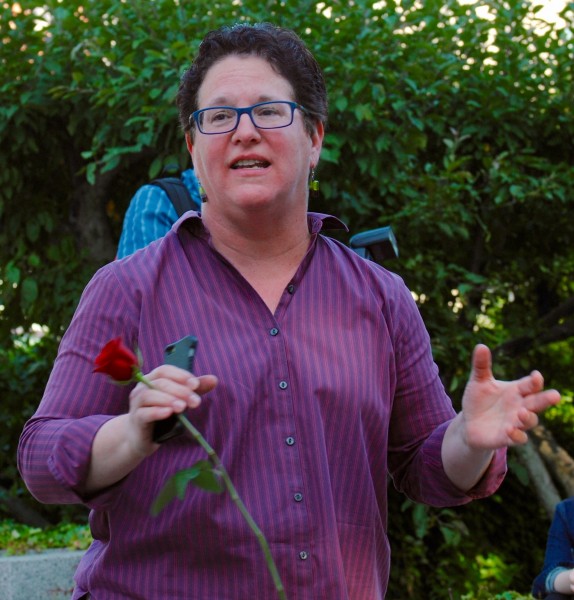




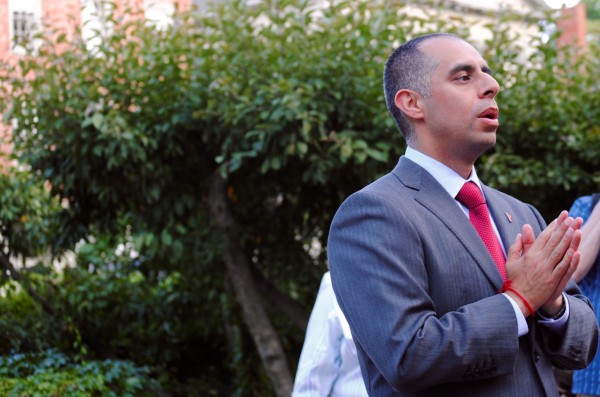
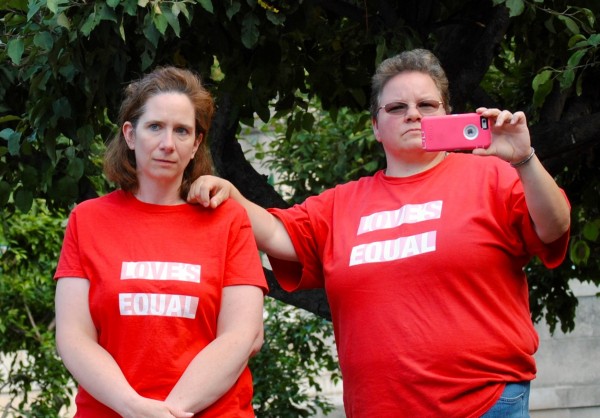









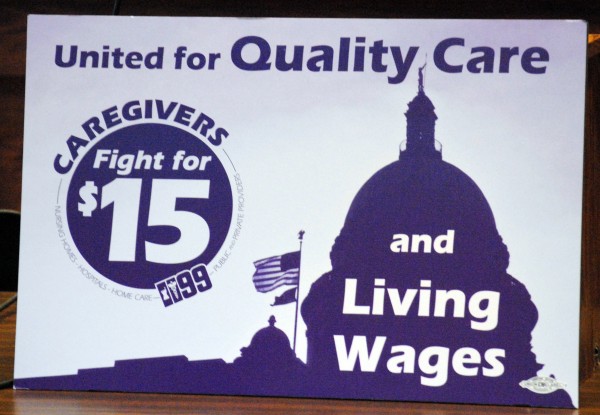 SEIU 1199, representing about 4,000 health care workers in RI, held a press conference to announce a series of initiatives “to improve the way the state invests in Medicaid-funded programs in long-term care and create a pathway to living wages for caregivers.”
SEIU 1199, representing about 4,000 health care workers in RI, held a press conference to announce a series of initiatives “to improve the way the state invests in Medicaid-funded programs in long-term care and create a pathway to living wages for caregivers.”
The press conference was part of a “Day of Action” at the State House, and was followed by SEIU members presenting their ideas to their state reps and senators ahead of the day’s legislative session.
“I love my residents like my own family, but at the end of the day, I don’t bring home enough money to take care of my two daughters,” said Nichole Ward, a certified nursing assistant (CNA) at Greenville Skilled Nursing and Rehab in Greenville, who spoke of the difficulty of not earning a living wage. “After working hard, being on our feet, taking care of people for 40 hours a week, I shouldn’t have to choose between my electric bill and school supplies for my kids. We deserve at least $15 an hour.”
Patrick Quinn, executive director of SEIU 1199 and a member of the Reinventing Medicaid working group, outlined the eight points of SEIU’s plan to both cut Medicaid costs and increase wages for frontline medical workers while improving health outcomes. The eight points are expanded upon in a white paper entitled From the Frontlines to the Bottom Line.
1. Create a value based purchasing program to improve care quality and staffing in nursing homes and reduce re-hospitalization.
2. Increase transparency of “related party” finances and reporting, in effort to reduce waste, fraud, and abuse.
3. Target any nursing home rate reductions toward costs unrelated to the provision of direct care, such as Fair Rental Value and “home office” charges.
4. Focus increased revenue and rate restoration initiatives on direct resident care and workforce stability.
5. Claw Back: Recoup Medicaid reimbursements that are not used for their intended purpose, especially in regards to direct labor.
6. Cap Medicaid reimbursement for executive compensation based on facility size.
7. Realize Medicaid savings though more energy efficiency initiatives.
8. Expand Rhode Island’s Paid Family Leave Program from 4 to 6 Weeks.
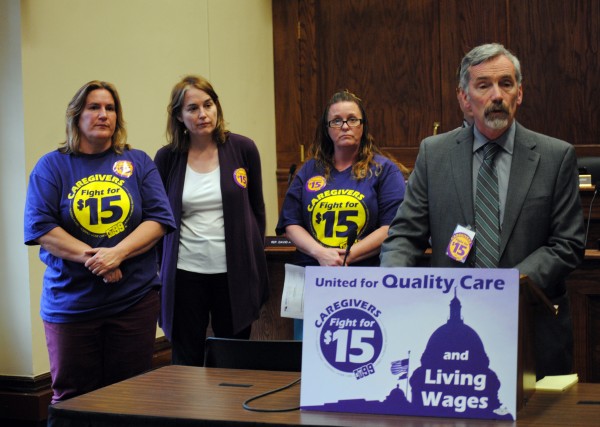 Speaking in support of the SEIU’s effort was Jenn Steinfeld of the Women’s Fund of Rhode Island, who sees this as both a social justice and gender equity issue.
Speaking in support of the SEIU’s effort was Jenn Steinfeld of the Women’s Fund of Rhode Island, who sees this as both a social justice and gender equity issue.
It’s a gender issue on two fronts, says Steinfeld, because women live longer, and therefore make up 74 percent of the elderly patients in the Medicaid system and women make up 90 percent of the direct care workforce. Additionally, the over representation of minorities in the field makes this a racial justice issue, notes Steinfeld.
CNAs Dawn Auclair and Manoucheka Robert both spoke about the attachment they have to their patients, the importance of their work, and their difficulty in performing this valuable work for such low pay.
Sarah Nolan, who works for the SEIU International Policy Department in Washington DC, said that the white paper they have released focuses on both short and long term solutions to the problems in Medicaid quality and cost. She also stressed the importance of front line medical workers playing a role in these discussions.
Near the end of the press conference, CNA Nichole Ward explained that experience is key when dealing with patients. Cutting costs and worker turnover can raise the stress level of front line health care workers, and residents in nursing homes can sense that stress, even if healthcare workers think they are hiding it.
Such an environment cuts against the efforts to improve health care.
]]>
A large coalition to raise the tipped minimum wage was launched at the State House with a press conference and public testimony on House Bill 5364. Representative Aaron Regunberg introduced the bill that would gradually increase the the minimum wage from $2.89 to match the regular minimum wage by 2020. Senator Gayle Goldin introduced matching legislation on the Senate side. There has been no increase in the tipped minimum wage in nearly 20 years.
ROC United RI (Restaurant Opportunities Center) launched “One Fair Wage Rhode Island,” an impressive coalition of community, labor, faith business and women’s organizations that includes the Women’s Fund of Rhode Island, RI-NOW, NAACP-Providence Branch, Farm Fresh Rhode Island, the Economic Progress Institute, the Bell Street Chapel, Rhode Island AFL-CIO, the Coalition of Labor Union Women, Rhode Island Jobs with Justice, Fuerza Laboral, NEARI, United Service and Allied Workers of Rhode Island, Planned Parenthood of Southern New England and Unite Here Local 217.

Many restaurant patrons are unaware that their tip is not simply a “thank you” for great service, said Senator Goldin, “It’s paying your server’s base salary, and nobody’s base salary should entirely depend on a customer’s mood.”
More than just being an issue of fairness, this is an issue of impacting “women’s economic security,” says Women’s Fund Executive Director Jenn Steinfeld. “Nearly three in four Rhode Island tipped workers are women, one-third are mothers, and more than half of these are single mothers.” Steinfeld says that eliminating the tipped minimum wage will “help address the gender pay gap.”
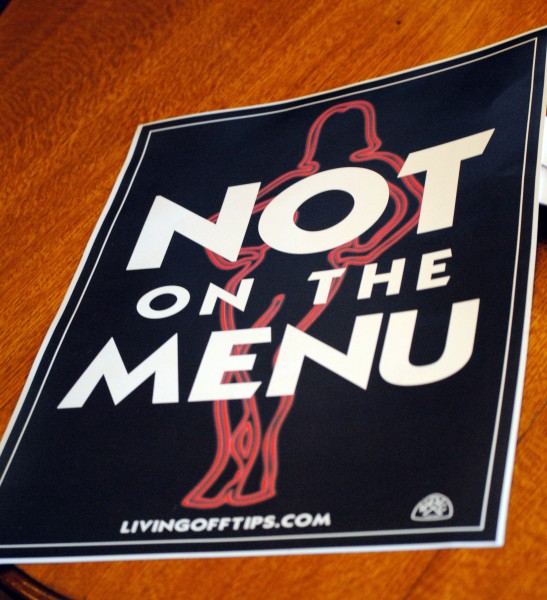 Being dependent on tips for their salary makes servers more vulnerable to sexual harassment, since telling a customer that their advances or flirting is unwelcome puts the server at risk of losing a tip. A recent report from the national ROC United found that, “Women living off tips in states with a $2.13 an hour tipped minimum wage are twice as likely to experience sexually harassment than women in states that pay the full minimum wage to all workers. In fact, all workers in $2.13 states, including men, reported higher rates of sexual harassment, indicating that the sub-minimum wage perpetuates a culture of sexual harassment.” It’s in response to this atmosphere of sexual harassment that ROC United has launched its “Not on the Menu” campaign.
Being dependent on tips for their salary makes servers more vulnerable to sexual harassment, since telling a customer that their advances or flirting is unwelcome puts the server at risk of losing a tip. A recent report from the national ROC United found that, “Women living off tips in states with a $2.13 an hour tipped minimum wage are twice as likely to experience sexually harassment than women in states that pay the full minimum wage to all workers. In fact, all workers in $2.13 states, including men, reported higher rates of sexual harassment, indicating that the sub-minimum wage perpetuates a culture of sexual harassment.” It’s in response to this atmosphere of sexual harassment that ROC United has launched its “Not on the Menu” campaign.
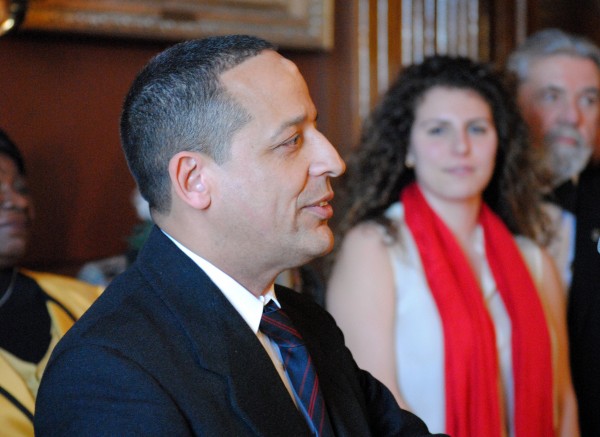
There is also good economic sense in raising the tipped minimum wage, maintains Mike Araujo, of ROC United RI. “”Raising the subminimum wage will have an important stimulative effect for Rhode Island. When tipped workers earn more, that money goes right back into the local economy.” ROC United estimates raising the wage will pump $64 million into the state’s economy. Further, tipped workers in Rhode Island currently receive $638,325 in food stamps every month, which means that taxpayers are effectively subsidizing the restaurant industry through social welfare programs.
After the press conference there was a heaing on Regunberg’s bill in the House Labor Committee. Though over 150 people signed up to testify, on both sides of the issue, in the end only 25 people could endure the four hour hearing waiting for their turn to speak. Those speaking against raising the tipped minimum wage were mostly members of the Rhode Island Hospitality Association (RIHA), a business lobbying group that routinely opposes any legislation that might raise the minimum wage or improve the ability of workers to collect money lost to wage theft. Many of the RIHA members wore small golden pineapple pins.
“The states that have eliminated completely their subminimum wage,” said Representative Regunberg describing the economic impact of his bill, “have as high or higher industry and job growth rates as subminimum wage states.”
Bill Kitsilis, of Angelo’s Palace Pizza sees no reason to raise the tipped minimum wage, and said, “My tipped employees… are some of the highest paid employees in my business.” He thinks $2.89 is fine, since that’s what he predicated his business model on. Comparisons with other states are not valid, Kitsilis maintains, because other states have much, much stronger economies.
Representative Antonio Giarrusso asked about employee turnover. Kitsilis feels that turnover only happens when people aren’t making money, and he also says that there are a lot of people hiring right now, making it difficult to find workers. An odd statement, considering Rhode Island’s unemployment rate.
The issue of “side work” came up, that is, the work servers do for a restaurant, at $2.89 an hour, that doesn’t earn the server tips. Side work is an old way of getting work done in a restaurant on the cheap, and is completely legal. Raising the subminimum would eliminate this disparity. Kitsilis said that such work “tends to be… a small percentage of what they do, most of the time…”
Representative Teresa Tanzi has worked in the restaurant industry for 14 years. “In those 14 years I have worked at dozens of restaurants, somewhere around 45 restaurants, I would say. And in all those restaurants, one has paid me according to the law.” For fear of retaliation, she could never confront management about this. “I’m well aware that they are breaking the law, but there is nothing I can do. I am relying on my manager and the owner of that restaurant for my employment.”
The Department of Labor surveyed 9000 restaurants over two years and found that 84 percent of them violate the law.
When Chairperson Joseph Shekarchi pushed back against Tanzi’s experience, saying that he doesn’t see the connection between low wages and harassment and abuse of servers, drawing on his experience as a bartender, Tanzi stuck to her guns and pointed out that the experience of women working as servers and men working as bartenders are very different. “It does happen and it’s a daily occurrence. If someone touches you, or if you’re waiting on a table and it’s a party of ten and that’s all the money you’re going to make tonight, and they want to be fresh with you in some way shape or form… I refer to it as a ‘golf clap’ in my vernacular. Whenever someone says something that’s ‘funny,’ you’re waiting on someone and they something that isn’t funny, you have to laugh. If someone touches you inappropriately, what are you going to say? There’s very little recourse as a server that you have.”
Rep Giarrusso’s solution for “any woman or anybody getting sexually harassed” is that “they should hit somebody with a nine iron.” Maybe he’ll introduce legislation to that effect.
“The truth is, 60 percent of restaurant workers in Rhode Island are over the age of 24 and 32 percent of all of Rhode Island’s restaurant workers are parents.”
“I feel that the current wage devalues me as an employee,” says Daniel Burke. Burke explained how the days and hours he is making good money from tips are averaged with the days and hours he’s performing other tasks at the restaurant. As long as he averages minimum wage with the money provided by customers, the restaurant can get away with paying him $2.89 an hour. Of course, Representative Giarusso thinks that Burke should take this issue up with his employer because, “I would, that’s for sure.”
As a 31 year old mother explains that her bartender job requires her to perform duties that are not directly related to serving customers. Therefore no tips can be expected and the restaurant gets away with paying employees $2.89 an hour for work that any other business in the state would have to pay at least minimum wage to accomplish. Again, Representative Giarrusso misses the point, thinking that the issue of side work isn’t related to this. As long as there is a two-tiered wage system, restaurant managers and owners will have an incentive to make workers do untipped work at the lower wage, rather than pay the server properly.
ROC United RI’s Mike Araujo finally explains that “those extra tasks,” that is side work, are “built into the job.” Side work, prep and cleaning averages out to about 3 or 4 hours a day, which is “effectively unpaid labor.” This profitable industry is built on the backs of primarily underpaid women.
Araujo may have summed up the night best when he said, “This issue speaks to how we believe society should be shaped. Do we believe that our citizens deserve equal treatment and deserve full equality, or do we believe that there is a second tier that women, increasingly, belong to?”
“Moving into a restaurant that paid over the minimum wage had such a tangible benefit…”
“When we talk about this issue we can’t escape the fact that this is a women’s issue… forcing a worker to rely on tips for any portion of their base wage significantly increases their chances of experiencing sexual harassment.”
Once again, Representative Giarrausso claims that “I don’t really understand the connection to sexual harassment… If someone’s a jackass, for lack of a better word… I mean, I don’t promote sexual harassment. I think those people should be tied up and jailed and never come out.” Giarrusso claims he “can’t draw the parallel” between low pay and sexual harassment.
But Giarrusso tips his hand as he grins and asks, “Is there an acceptable level of sexual harassment depending on how much you’re getting paid?” This is simply a variation of the line, variously ascribed to George Bernard Shaw or Winston Churchill, “We know what you are, we’re just haggling over the price.”
In response to testimony quoting FDR, Rep. Giarrusso maintains that “there is data that shows that every time minimum wage goes up, so does unemployment.” The US Department of Labor dispels that myth at the top of its page on the minimum wage. Giarrusso also brings up the specter of automation, as is done now whenever minimum wage increases are discussed. I deal with the automation argument here.
Joe Fortune, speaking below, wrote about his experience speaking before the committee on his own blog here.
Notice the pineapple pin. RIHA is in the house. This man is a CPA who specializes in hospitality. I am willing to bet he makes more than $2.89 an hour plus tips.
John Elkhay owns Ten Prime Steak & Sushi, Rick’s Roadhouse, XO Café, Luxe Burger Bar, and Harry’s Bar & Burger, as well as Veritas Catering. “Unlike the people who testified before me,” says Elkhay, “I actually live and work in Rhode Island.” I guess he wasn’t listening to the experiences of the four speakers who do live and work in Rhode Island. After telling the committee about how many employees he has and how much money they all make, he throws them under the bus, saying, “They don’t claim all their tips, by the way. That’s a sneaky little secret.”
“Don’t say that in this building,” says Representative Giarrusso, trying to make light of the comment.
Elkhay doesn’t blink. “Yeah, well, it’s the truth.”
“Who is here, in the industry, saying there is a problem?” asks Chris Tarro, owner of Siena Restaurant Group, answering “I don’t think there is a problem.”
“Don’t take my word for it,” he continues. Rather, he recommends going out to dinner and asking a server. But, “don’t ask if they want a raise, everyone would like one.”
Tarro thinks that the kind of retaliation employees face for stepping up to complain about their working conditions is somehow equivalent to the reaction of potential customers when they hear about the ways restaurants pay their employees and the ways in which many restaurants exploit their employees. “When I testified last time here,” says Tarro, “I got emails, I was on progressive blogs… there’s a penalty to us coming here.”
“I would like to give a nice big golf clap to Representative Tanzi and to anyone else who is trying to distract you from the issue at hand…” is as much as this sarcastic restaurant owner could say before being stopped by Chairperson Shekarchi, who advised not going after those who previously testified.
“I don’t want character assassination,” said Shekarchi, “It doesn’t help your cause.”
“I would suggest to you that twenty years… twenty years without a raise… I don’t think there’s anybody in this room that’s going to work for anybody for twenty years without a raise.”
Kristin Dart, speaking for Planned Parenthood, said that when women are paid more, they are better able to pay for essential medical care.”If I have to choose between food on my table and my annual health exam, I’m going to put food on the table.”
Speaking of her own experience as a server, she said that she was regularly told by her bosses that sexual harassment was “part of the job. If you want to make tips, then you have to be ‘nice’ to customers.”
Amy Barclay owns Simpatico in Jamestown. She’s worked her way up from being a server, pregnant with twins making $4500 a week to owning her own place. She says, “This isn’t a gender issue. This isn’t a Planned Parenthood issue, this is a performance issue.” Barclay says, “I was great staff. I still am.”
Barclay has 15 core employees and 60 in season. “They beg for their jobs back,” she says, “and they should.”
Having worked in California, where there is no tipped minimum wage, and now working in Providence, Avi maintains that in California the restaurant industry is booming and that people in the restaurants out there have a greater feeling of teamwork. “It should be the employers responsibility to pay their employees, and not to pass that on to the customers.”
Ray Desmarais, of 99 Restaurants, sounded like he was blaming victims for for their harassment when he said, “For anyone to be harassed in the restaurant business, shame on them for allowing it. Leave and come work for me. Cause I’m a good guy and I’ll treat you well.”
Senator Joshua Miller says, “…there hasn’t been a minimum wage bill I didn’t love, until today, until this bill.” Miller feels this bill takes “important revenue away from some of my most valued staff.” He owns three restaurants with over 80 servers. Senator Miller, like Representative Giarrusso, sees no relationship between low wages and sexual harassment.
Justin Kelley said that “it’s time to raise the wage” in Rhode Island. Business models change, says Kelley, citing out the end of slavery, child labor and the eight hour day as examples. Compared to those changes, raising the subminimum wage should be easy.
“I think it’s a human rights issue,” says this restaurant worker from Olneyville, “I don’t care if your male or female, that minimum wage needs to come up.”
Bob Bacon is the owner of Gregg’s Restaurants and the president of the Rhode Island Hospitality Association. He frequently visits the State House to testify against bills that might increase a worker’s wage or strengthen a worker’s ability to not have their wages stolen. Bacon feels that the Department of Labor is doing a terrific job enforcing labor laws, and no new laws are needed. Servers make a “self-reported” average of $12.12 an hour, says Bacon.
Sam Bell, president of the Rhode Island Progressive Democrats, explained President Obama‘s support for increasing the minimum wage and for increasing the tipped minimum wage. “Raising the full minimum wage and the tipped minimum wage will help reduce poverty among women and families as well as make progress towards closing the gender pay gap.”
“Considering a tipped minimum wage increase… would cost ten percent of our current sales.” This begs the question: Is the entire profitability of the restaurant industry dependent on paying servers subminimum wage? Do restaurant profits come solely from underpaying staff? How do restaurants remain profitable in California, where there is no tipped minimum wage?
She finishes the evening’s testimony with, “we’re seeing servers being replaced right now with technology all over the world.”
As I’ve said before: technology like that is coming no matter what we pay our employees. The questions we need to be asking in the face of new technologies are bigger than minimum wage increases, such questions go to the heart of our economic system, and whether it’s sustainable in the long term.







]]>
